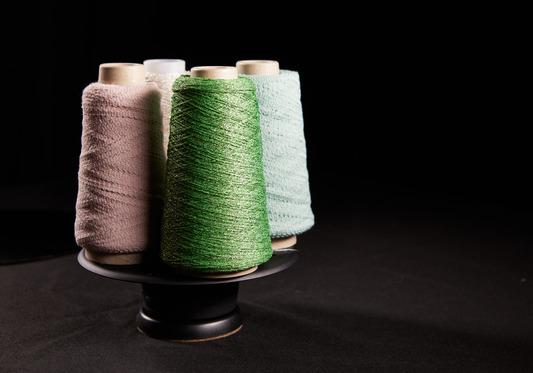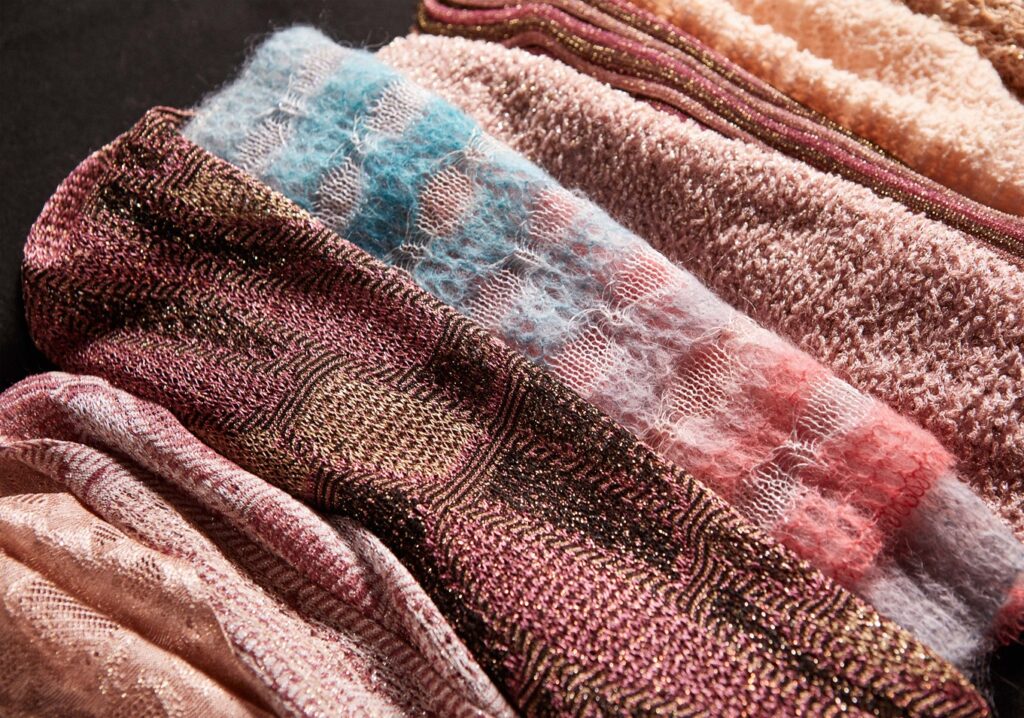10 Questions with Lanificio dell’Olivo
We sat down with Fabio Campana, CEO of Lanificio dell’Olivo to better get to know the company and their commitment to sustainability
Considered one of the oldest and most iconic brands within the industrial knitwear and handknitting industries, the story of Lanificio dell’Olivo first begins in 1947. An Italian-born company with roots in the textile district of Prato with a deep focus on research and technology in both their products and mindsets as well as close attention to sustainability, while maintaining an entirely Made in Italy supply chain.
Their know-how built on experience, creativity, and innovation has allowed Lanificio dell’Olivo to offer some of the most prestigious brands within the Italian and international fashion industries, an exclusively Made in Italy and high-quality product that can be customized to meet each brand’s needs making each piece unique.
With the release of their recent Autumn Winter 24/25 collection, Lanificio dell’Olivo offers brands 12 new proposals crafted for a highly dynamic fashion that put excellence and service, in addition to sustainability, at the forefront of the collection with each piece holding at least one certification and introducing the NATIVA certification to their portfolio.
We sat down with Fabio Campana, CEO of Lanificio dell’Olivo to better get to know the company, their commitment to sustainability, and how despite market changes and demand they are able to maintain a localized supply chain.
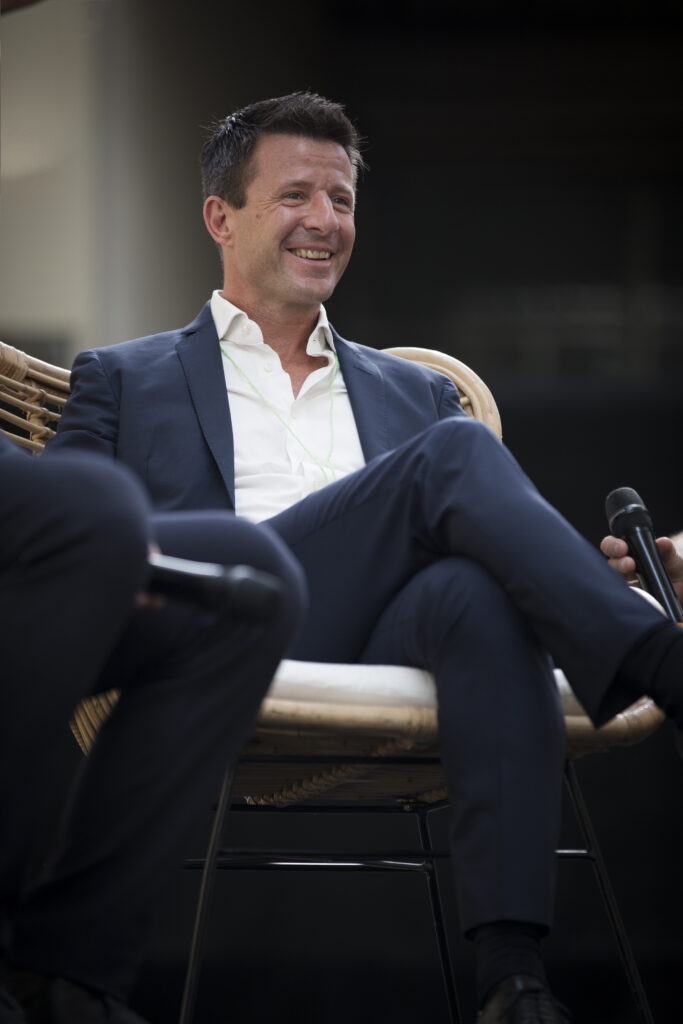
1. Fabio, many are familiar with Lanificio dell’Olivo because of its renowned reputation in the industry, but for those who don’t, how would you describe Lanificio dell’Olivo as a company in just a couple of words?
Lanificio dell’Olivo is a historic Italian textile company leader in the production of fancy yarns known for its commitment to quality, sustainability, and customer service.
2. Of course, the company’s history is a big part of the DNA. Can you tell us a little bit about where and how the story of Lanificio dell’Olivo first begins?
The story of Lanificio dell’Olivo (LdO) begins in 1947 when Rodolfo Querci founded the company through a spin-off of part of the Querci family mill. Initially, it grew for the alpaca, and Mohair focused on producing yarns for knitwear. Over the years, LdO expanded its capabilities and introduced innovative technologies for creating specialty yarns. Later on, it changed from a family business to be owned by a holding called Ethica Global Investments.
The company’s history reflects a journey of growth, diversification in twisting technology, and a strong emphasis on sustainability. It eventually expanded into the luxury market while maintaining its core identity and expertise.
3. Can you talk to us briefly about the technological and product evolutions the company has experienced over the years to keep up with increasing demand and market changes?
Lanificio dell’Olivo has likely invested in modern machinery and technology to enhance production efficiency and product quality. They’ve also likely adapted to changing fashion trends and customer preferences, without leaving their core essence. In addition, the company has demonstrated a commitment to sustainability in the production of new products, implementing measures such as the transformation of stock materials into more sustainable options, aligning with the growing importance of environmentally conscious practices in the textile industry.
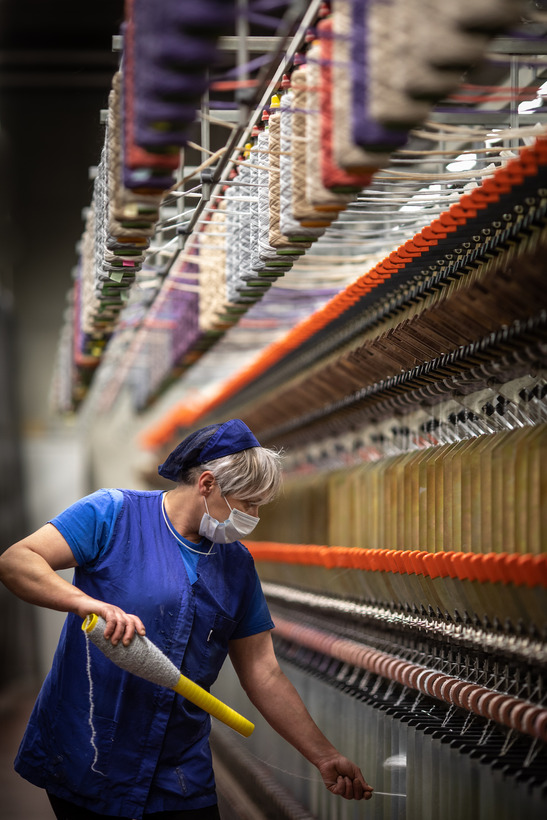
4. Digitalization is a key aspect in terms of keeping up with the evolution. Can you tell us a little bit about where Lanificio dell’Olivo stands on the digital spectrum?
Our company has implemented digital tools for design, production, and supply chain management, enabling faster response to market demands. Business intelligence to read the gap in the brands.
On the other side, we have been updating our website to bring the customer a more seamless and smooth way of navigating it. On this platform, we can find the latest news from our industry, events, and our commitment to sustainability. We also share our journey and products with a creative drive through social media platforms such as; Instagram, Facebook, and LinkedIn.
5. I can imagine that with these changes and evolutions having an entirely localized supply chain has provided some challenges for the company, especially in terms of higher costs and production times. Can you talk to us about your local supply chain and why maintaining it is essential for the company?
Maintaining a localized supply chain allows Lanificio dell’Olivo to have better control over the production process, ensuring quality and sustainability. It also supports the local economy and preserves traditional craftsmanship, aligning with their commitment to sustainability. Furthermore, their flexibility and capability in setting up production capacity aligned with market needs have likely contributed to their ability to meet evolving customer demands while staying true to their heritage of quality and craftsmanship.
6. As we open the subject of supply chain and traceability, talk to me a little bit about what sustainability means for the Lanificio dell’Olivo and some of your best practices. I know the company holds an extensive and impressive portfolio of certifications and you just recently published your sustainability report.
For Lanificio dell’Olivo, sustainability is not just a catchphrase; it’s a guiding principle that influences every facet of our business. This commitment is evident in their careful selection of eco-friendly materials, eco-conscious production processes, a portfolio of certifications, and a published sustainability report done every year for several years now, that demonstrates transparency and accountability. The company actively participates in environmental initiatives like 4 Sustainability, reflecting its proactive stance on environmental responsibility. These practices align with the growing demand for sustainable and ethically sourced textiles in the fashion industry.
7. Taking a step back and looking at the brand side, can you share how the sourcing process for your brand clients has changed? I am assuming brands are asking a lot more information from you now than they were maybe 5 years ago?
Brands have become more environmentally conscious and demanding, leading to a shift towards sustainable sourcing. Lanificio dell’Olivo is well-prepared to meet these demands with its sustainability certifications, traceability at every step of the process, and great people management.
8. I know that with the release of the recent Autumn Winter 24/25, the company also introduced a new certification: Nativa. Can you explain what this certification means and why it’s important for fashion brands?
The NATIVA™ certification signifies an elevated standard for wool fibers, underpinned by a dedication to social, animal, and environmental responsibility. It underscores fair labor practices, animal welfare, and eco-friendly production, meeting the growing expectations of consumers for transparency and sustainability in the supply chain. NATIVA™ also assures the highest quality wool through collaboration with Merino wool producers worldwide, positioning itself as a new reference brand in luxury wool, embodying a commitment to quality and responsibility in the luxury textile industry.
9. Let’s talk for a minute about the new collection. Wools, four-season cotton, mohair and more. What are some of the emerging themes from the collection?
The new collection of yarns for autumn and winter has 12 new proposals created for a rapidly changing fashion scene that needs an increasingly articulate and extended range of style and design choices. Excellence and heavy investments in service and sustainability continue to be the pillars of our work. We especially encourage sustainability, almost all of the yarns in the collection have at least one.
In this collection, several key themes emerge:
- Innovative Materials: The collection prioritizes innovative materials for improved performance and versatility.
- Sustainable Alternatives: There’s a clear shift towards sustainability, with a focus on regenerative crops and eco-friendly resources.
- Natural and Cosmic Aesthetics: Designs draw inspiration from the natural and cosmic worlds, with an emphasis on circular systems and minimal waste.
- Simplicity and Minimalism: A “less is more” lifestyle is evident, with a focus on appreciating simplicity.
- Nostalgia and Reviving the Past: The collection revalues the past through themes inspired by legends, folklore, and artisan craftsmanship.
- Artificial Intelligence and Surreal Styles: AI technology influences transformative designs with a surreal twist, bridging the digital and physical realms.
These themes collectively reflect the fashion industry’s response to sustainability, innovation, and creativity.
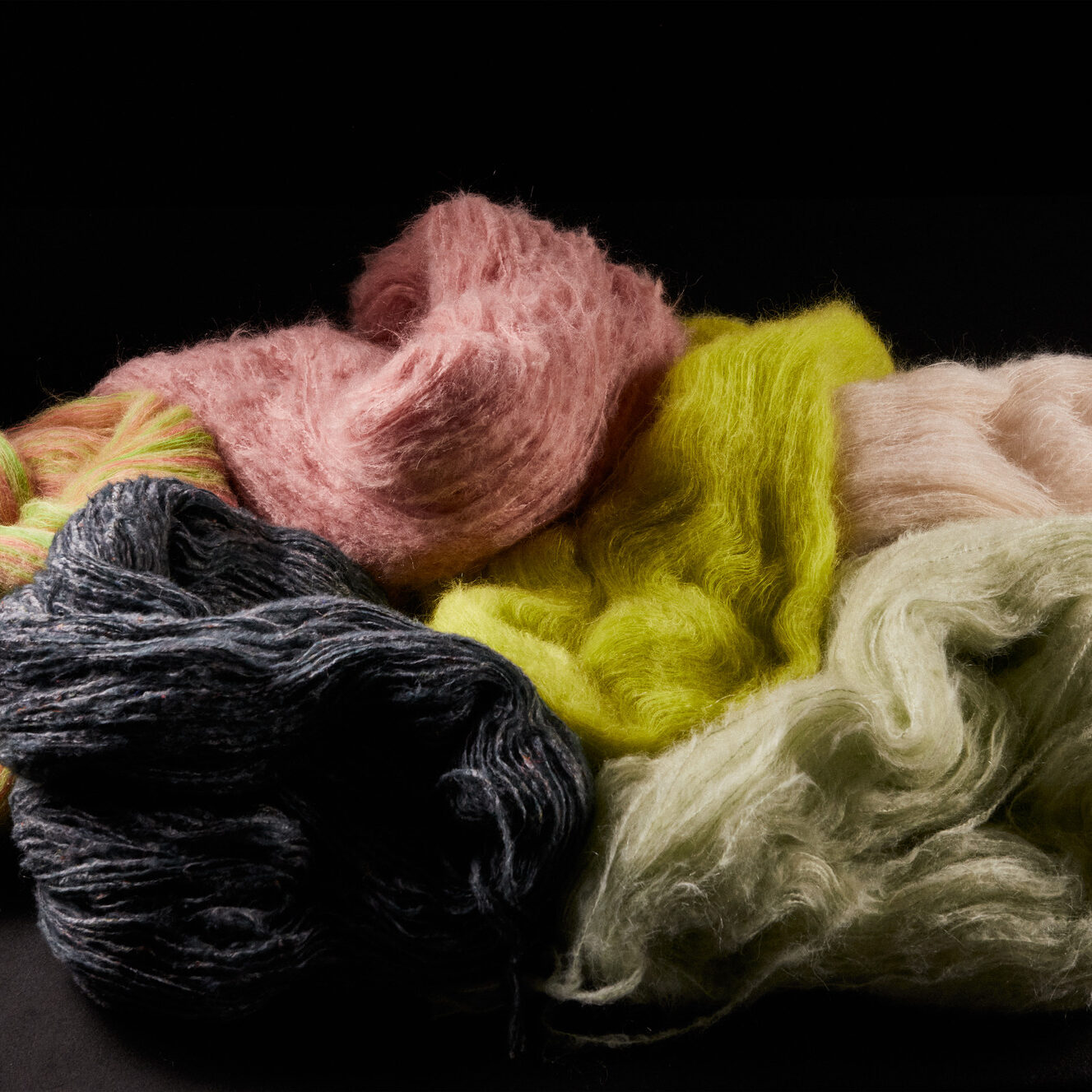
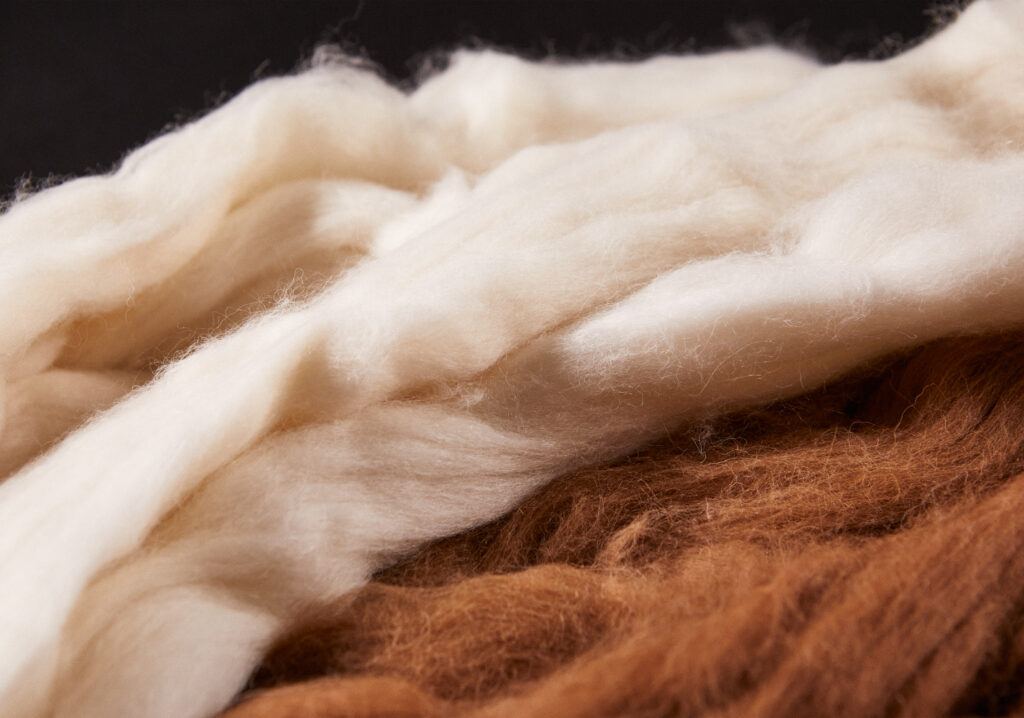
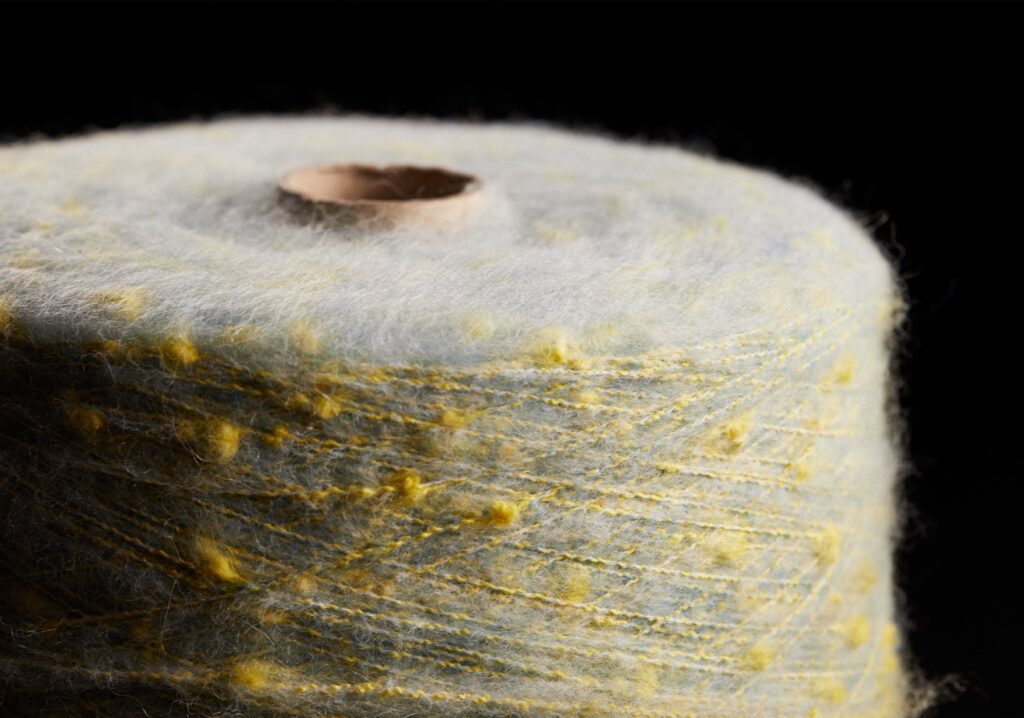
10. I know Lanificio works a lot with customization. Walk us through what this looks like for a client.
Lanificio dell’Olivo’s approach to customization for sustainable materials is client-focused and collaborative. We start by deeply understanding our client’s specific needs and sustainability goals, guiding them through a wide range of sustainable material options. With our extensive certifications and partnerships, we ensure that the selected materials align with their sustainability objectives, all while maintaining open communication and transparency. This process results in beautifully tailored, eco-conscious products of the highest quality and environmental responsibility.
